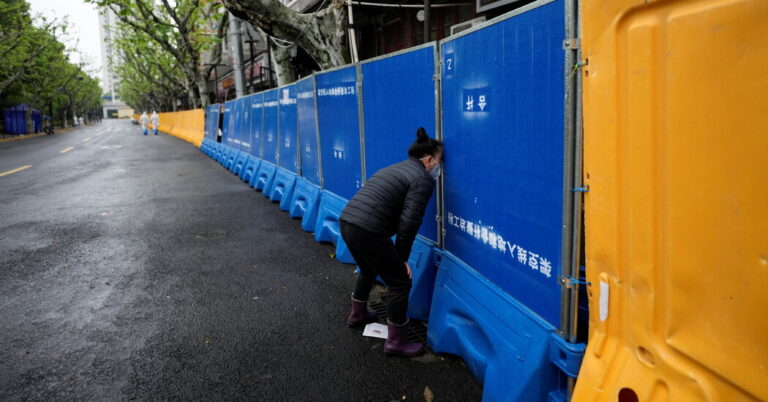Election Shadows Supreme Court in Trump’s Immunity Case
“There comes a point,” Justice Felix Frankfurter wrote in 1949, “where this court should not be ignorant as judges of what we know as men.”
The Supreme Court’s decision on Wednesday to schedule arguments in April to consider former President Donald J. Trump’s argument that he is immune from prosecution seemed colored by the lack of that perspective. It set a plausibly expedited schedule for considering a question of significant constitutional moment, one that would ordinarily be resolved by the justices in a definitive opinion.
But the court’s order appeared to ignore the enormous elephant in the room: the looming election that makes Mr. Trump’s trial on charges that he had plotted to overturn the 2020 election a race against time. The schedule the court set could make it hard, if not impossible, to complete Mr. Trump’s trial before the 2024 election. Should Mr. Trump win at the polls, there is every reason to think the prosecution would be scuttled.
The justices were not alone in ignoring the elephant. Jack Smith, the special counsel overseeing the prosecution, never cited the November election as a reason for the court to move quickly.
Instead, he talked around the beast. “The public importance of the issues, the imminence of the scheduled trial date and the need for a prompt and final resolution of respondent’s immunity claims,” he wrote in December, “counsel in favor of this court’s expedited review at this time.”
People who had been rooting for the Supreme Court to reject Mr. Trump’s appeal entirely, whether by denying review of or summarily affirming an appeals court ruling against Mr. Trump, misunderstand the court’s conception of its own power and importance. The justices seem to think that decisions of such constitutional significance, as in broadly similar cases concerning claims of immunity from Presidents Richard M. Nixon and Bill Clinton, ought to be settled by the nation’s highest court.
Put another way, the court’s insistence on deciding the largest questions in American life may have effectively answered one of them: whether Mr. Trump may be held accountable for his actions in the aftermath of the 2020 election before the one in 2024.
That said, though at different times in the litigation, the two sides in the immunity case seemed to agree that the court should have the last word.
In December, Mr. Smith, in asking the justices to leapfrog the appeals court and hear the case immediately, wrote that “it is of imperative public importance that respondent’s claims of immunity be resolved by this court,” adding that “only this court can definitively resolve them.”
Quoting the Supreme Court’s rules, Mr. Smith wrote that “this is a quintessential example of ‘an important question of federal law that has not been, but should be, settled by this court.’”
The justices denied Mr. Smith’s petition 11 days after he filed it, in a brief order without noted dissents. The order conveyed the sense that the court was not inclined to treat the case as exceptional, foreshadowing Wednesday’s development.
The U.S. Court of Appeals for the District of Columbia Circuit then ruled against Mr. Trump, in a decision issued a month after the case was argued. That, too, was prompt by judicial standards but hardly an example of blazing speed.
When the case returned to the Supreme Court, Mr. Trump’s lawyers quoted passages from Mr. Smith’s brief, saying the special counsel had been right to say the question should be resolved by the justices.
“On this point,” they wrote, “the parties agree.”
Sixteen days later, the court issued what would have seemed, but for the coming election, an order reflecting a sober compromise. Some justices may well have wanted to treat the case in the ordinary course, which would have meant that arguments would not be heard until October at the earliest. Other justices may have wanted to grant Mr. Smith’s request for arguments in March or to let the appeals court’s decision stand.
As before, there were no noted dissents.
In cases that directly affected elections — where the mechanisms of voting were at issue — the court has sometimes acted with unusual speed.
In 2000, in Bush v. Gore, the court issued its decision handing the presidency to George W. Bush the day after the justices heard arguments.
In a second case concerning Mr. Trump, an appeal from the decision of the Colorado Supreme Court that he was ineligible for the state’s primary election ballot because he had engaged in insurrection, the justices have moved at a relatively brisk pace. But there, too, the question of whether Mr. Trump can appear on the ballot was directly tied to the election.
The court granted Mr. Trump’s petition seeking review in the Colorado case just two days after he filed it and scheduled arguments for about a month later. Based on questioning at the oral argument, Mr. Trump is likely to prevail. A decision could come in a matter of days.
The immunity case, too, could alter the course of the election, but indirectly. If the trial goes forward, voters will hear evidence that could affect their choices. If Mr. Trump were convicted, public opinion polls say his electoral prospects would dim.
In United States v. Nixon, the 1974 decision that ordered President Richard M. Nixon to comply with a subpoena for audiotapes of conversations with aides in the White House, the court moved quickly, granting the special prosecutor’s request to bypass the appeals court a week after it was filed.
The court heard arguments about five weeks later — compared with some seven weeks in the immunity case. It issued its decision 16 days after the argument, and the trial was not delayed.
The case led to Nixon’s resignation in the face of mounting calls for his impeachment.
Check out our Latest News and Follow us at Facebook
Original Source







